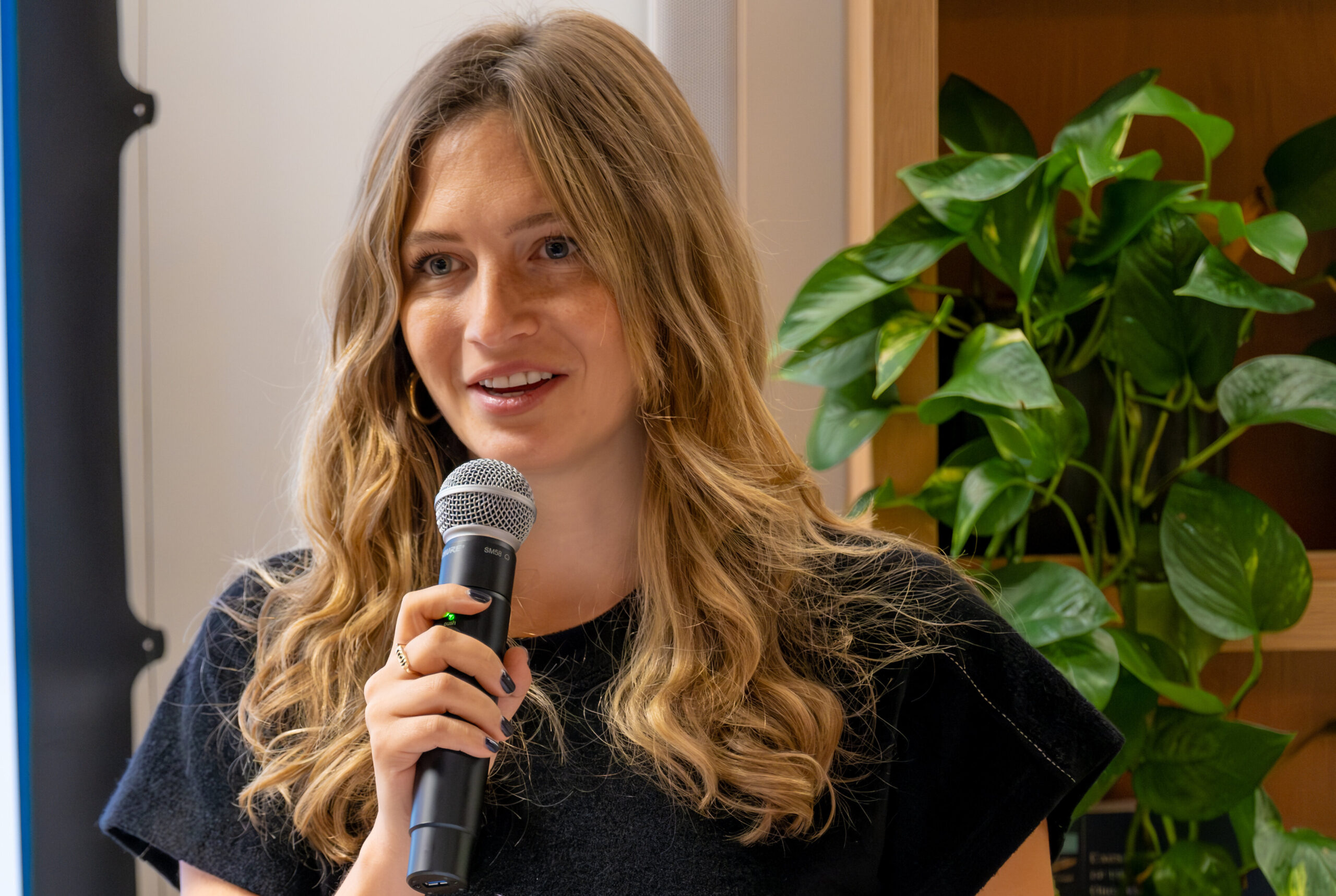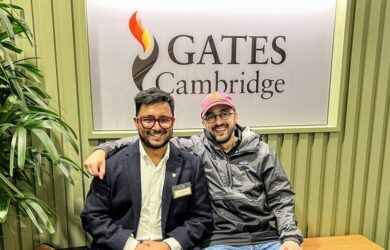
Film-maker Emily Kassie on her journey from journalist to award-winning maker of documentaries with real-world impact
We are just starting to know the truth. We are at the beginning of understanding what happened.
Emily Kassie
Emily Kassie [2016] is an Emmy and Peabody-nominated investigative journalist and filmmaker. Kassie shoots, directs and reports stories on geopolitical conflict, humanitarian crises, corruption and the people caught in the crossfire.
Her work for The New York Times, PBS “Frontline”, Netflix, and others ranges from drug and weapons trafficking in the Saharan desert to immigrant detention in the United States. In 2021, she smuggled herself into Taliban territory with PBS “Newshour” correspondent Jane Ferguson to report on the imminent siege of Kabul and targeted killing of female leaders. Her work has seen her receive multiple Edward R. Murrow, World Press Photo and National Press Photographers awards.
Kassie’s multimedia feature on the economic exploitation of the Syrian and West African refugee crises won the Overseas Press Club Award and made her the youngest person to win a National Magazine award. She was named on Forbes 30 under 30 in 2020 and is a 2023 New America fellow.
Journalism
Her background is in visual journalism. She was a multimedia reporter and creative director of Highline, Huffington Post’s investigative magazine, and also worked for The Marshall Project. Her first documentary, I Married My Family’s Killer, which follows couples in post-genocide Rwanda, won a Student Academy Award in 2015 just before starting her Master’s in International Relations at Cambridge. The focus of her Master’s was on early interventions and crisis identification, specifically the case of Burundi. This was driven by a desire to understand incentives for preventative actions that could ultimately help to deter humanitarian crises.
Her most recent film, Sugarcane, which is about the long-term impact of systematic abuse on indigenous people in Emily’s home country, Canada, won the US Documentary Directing Award at the Sundance Film Festival among a host of other awards and is among the 15 films that made the shortlist in this year’s Oscars’ Best Documentary Feature category.
Emily co-directed and co-produced the searing documentary which exposes a litany of forced family separation and horrendous physical and sexual abuse at a residential school run by the Catholic Church. It catalogues the impact that has on survivors and descendants, including the film’s co-director Julian BraveNoiseCat.
Sugarcane focuses on the Saint Joseph Mission School, one of 139 residential schools for Indigenous children that operated in Williams Lake, British Columbia. The aim of schools like Saint Joseph’s was the assimilation of young Indigenous people by removing them from their communities and suppressing their traditional languages, cultural practices and identities.
Impact
Emily says what the film portrays is just the start of the road to reconciliation. “We are just starting to know the truth. We are at the beginning of understanding what happened,” she says, adding that there are hundreds of similar schools in Canada and the US.
Indeed Sugarcane has already initiated conversations about the historic and ongoing toll of Indian residential and boarding schools in Native communities across North America, where it has been shown to over 3,000 survivors so far.
Those who participated in the making of the film say the project instigated a process of healing and a reclaiming of their narratives. The film has also had an impact on policy. It has been screened at the White House and, in September, Emily and Julian Brave NoiseCat showed the film and did a Q&A with Senators and Staff at the US Capitol ahead of a Senate vote on the Truth and Healing Commission Bill. Interior Secretary Deb Halaand, the first Indigenous cabinet secretary in the United States, who has been leading the first federal inquiry into US boarding schools, attended the Sundance premiere of Sugarcane, championing the film as an integral part of her ongoing work. During Truth and Reconciliation Day on September 30th, the film was screened at the Odawa Friendship Centre in Canada’s capital and later at the Canadian Parliament. A number of elected and national leaders, including the former Crown-Indigenous relations affairs minister and now Immigration Minister, attended.
Emily and Julian are working to introduce Sugarcane into classrooms across North America. It is already being screened for teachers unions and universities in Canada with a view towards integration into the Canadian school curriculum. In addition, the film is being shown to health professionals, business leaders and government officials in both the US and Canada and is being used by First Nations and Indigenous communities as an education tool within their own communities.












